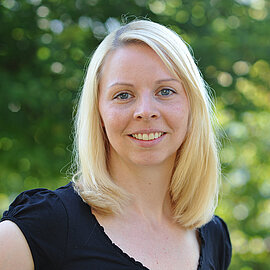The European Commission is tasked with evaluating agricultural policy measures on the effectiveness of direct payments with the aid of the data set provided by the Farm Accountancy Data Network (FADN). Whether the European Commission is able comply with this mandate is dealt with in IAMO Policy Brief 29 by IAMO Visiting Research Fellow Ulrich Koester and researcher Jens-Peter Loy, both professors in the Department of Agricultural Economics at the Christian-Albrechts-Universität zu Kiel. To this extent, the two researchers assessed whether the choice of agricultural holdings is representative of those particular holdings that should be targeted by agricultural policy measures.
According to the preamble of the EU regulation, ‘Each measure under the CAP should be subject to monitoring and evaluation in order to improve its quality and to demonstrate its achievements’. (see Recital 68 of the Regulation (EU) Nr. 1306/2013 des Europäischen Parlaments und des Rates vom 17. Dezember 2013) Therefore, an investigation is required to determine whether the officially-declared data set for policy evaluation, the FADN, can be used to assess the impact that direct payments of the CAP actually have on official policy objectives.
Based on their analysis, the authors conclude that the current data set of the FADN is inadequate for the evaluation of the effect of direct payments on income. There is a mismatch between farms that are included in the sample and farms that are entitled to receive direct payments. Possibly even more importantly, the information collected, so-called farm income, does not represent farmers’ actual income. Furthermore, the data are neither consistent in time nor between Member States.
The IAMO Policy Brief 29 argues that it is fundamentally impossible to evaluate alternative policy measures with the aid of only one single sample group. Furthermore, it points to considerable downfalls in the collection of data and highlights a lack of comparability of results among the different EU countries.
Text: 2,100 characters (incl. spaces)
IAMO Policy Brief 29
Koester, Ulrich; Loy, Jens-Peter (2016): Policy evaluation on the basis of the Farm Accountancy Data Network. IAMO Policy Brief No. 29, Halle (Saale).
IAMO Policy Briefs
IAMO conducts research on important agricultural policies. In our IAMO Policy Briefs we share our take on the researched issues. In this series of publications, we elaborate briefly and in comprehensive language on various topics, which are relevant for today's society. We hope to involve the interested public in these topics as well as decision makers in politics, the economy and the media. Since 2011, we publish IAMO Policy Briefs at irregular intervals.

